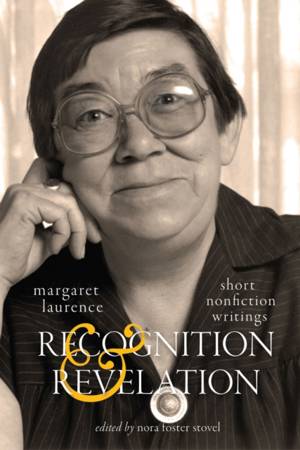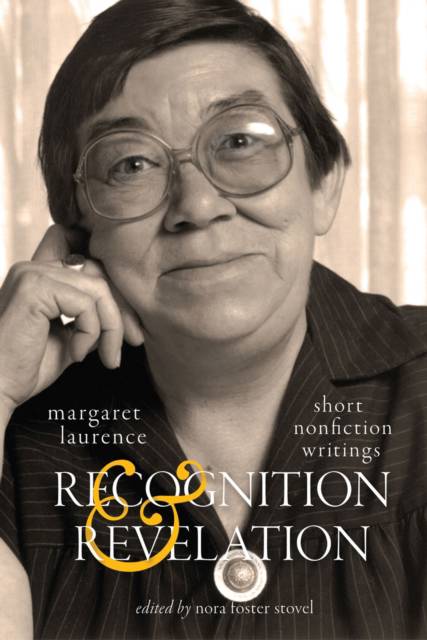
- Afhalen na 1 uur in een winkel met voorraad
- Gratis thuislevering in België vanaf € 30
- Ruim aanbod met 7 miljoen producten
- Afhalen na 1 uur in een winkel met voorraad
- Gratis thuislevering in België vanaf € 30
- Ruim aanbod met 7 miljoen producten
Zoeken
€ 51,95
+ 103 punten
Uitvoering
Omschrijving
Margaret Laurence, best known for her germinal novels set in the Canadian prairies, is one of the nation's most respected authors. She was also an accomplished essayist, yet today her nonfiction writing is largely unavailable and therefore little known. In Recognition and Revelation Nora Foster Stovel brings together Laurence's short nonfiction works, including many that have not previously been collected and some that have never before been published. These works, including over fifty essays and addresses that span Laurence's writing career from the 1960s to the 1980s, reveal her passionate concern for Canadian literature and for the land and peoples of Canada. Based on extensive archival research, Stovel's introduction contextualizes Laurence's nonfiction writings in her life as a creative artist and political activist and as a woman writing in the twentieth century. The texts range from essays on Laurence's own writings and on other works of Canadian literature to autobiographical essays, several focusing on environmental concerns, to sociopolitical essays and writing advocating for peace and nuclear disarmament. By revealing Laurence as a socially and politically committed artist, this collection of lively and provocative essays illuminates the undercurrents of her creative writing and places her fiction - often informed by her nonfiction writing - in a new light.
Specificaties
Betrokkenen
- Auteur(s):
- Uitgeverij:
Inhoud
- Aantal bladzijden:
- 400
- Taal:
- Engels
- Reeks:
Eigenschappen
- Productcode (EAN):
- 9780228003472
- Verschijningsdatum:
- 23/09/2020
- Uitvoering:
- Paperback
- Formaat:
- Trade paperback (VS)
- Afmetingen:
- 152 mm x 226 mm
- Gewicht:
- 612 g

Alleen bij Standaard Boekhandel
+ 103 punten op je klantenkaart van Standaard Boekhandel
Beoordelingen
We publiceren alleen reviews die voldoen aan de voorwaarden voor reviews. Bekijk onze voorwaarden voor reviews.











